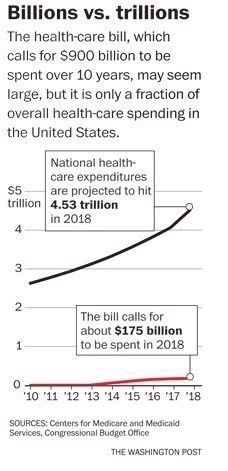Welcome to this week’s Health and Fitness. This is an Open Thread.
Women More Likely to Die After Heart Attack
Study Suggests Women Aren’t Treated as Aggressively as Men Who Have Heart Attacks
By Charlene Laino
WebMD Health News
Reviewed by Laura J. Martin, MD
March 16, 2010 (Atlanta) — Better heart treatment of women could help close the gender gap in heart deaths. Women would be more likely to survive a heart attack if they were treated more like men, French researchers say.
In a study of more than 3,500 people admitted to the hospital for a heart attack, women were far less likely than men to get angiography to visualize heart artery blockages or angioplasty to open up blocked arteries.
Women were about twice as likely to die within a month of having the heart attack, according to the study, presented at the American College of Cardiology’s annual meeting.
The higher death rate in women “is related to the fact that they don’t get the same treatments as men,” says Maria Rosa Costanzo, MD, an American Heart Association spokeswoman who was not involved with the study.
Women do not have the typical “chest pain” that is related to a heart attack. They often ignore the symptoms of tightness in the chest and indigestion that is not relieved with antacids are more typical symptoms in women.
Women’s Heart Attack Symptoms Different from Men’s
Symptoms may appear up to a month before attack
Research by the National Institutes of Health (NIH) indicates that women often experience new or different physical symptoms as long as a month or more before experiencing heart attacks.
Among the 515 women studied, 95-percent said they knew their symptoms were new or different a month or more before experiencing their heart attack, or Acute Myocardial Infarction (AMI). The symptoms most commonly reported were unusual fatigue (70.6-percent), sleep disturbance (47.8-percent), and shortness of breath (42.1-percent).
Many women never had chest pains
Surprisingly, fewer than 30% reported having chest pain or discomfort prior to their heart attacks, and 43% reported have no chest pain during any phase of the attack. Most doctors, however, continue to consider chest pain as the most important heart attack symptom in both women and men.
The women’s major symptoms prior to their heart attack included:
# Unusual fatigue – 70%
# Sleep disturbance – 48%
# Shortness of breath – 42%
# Indigestion – 39%
# Anxiety – 35%
Major symptoms during the heart attack include:
# Shortness of breath – 58%
# Weakness – 55%
# Unusual fatigue – 43%
# Cold sweat – 39%
# Dizziness – 39%
As is now custom, I’ll try to include the more interesting and pertinent articles that will help the community awareness of their health and bodies. This essay will not be posted anywhere else due to constraints on my time. Please feel free to make suggestions for improvement and ask questions, I’ll answer as best I can.

